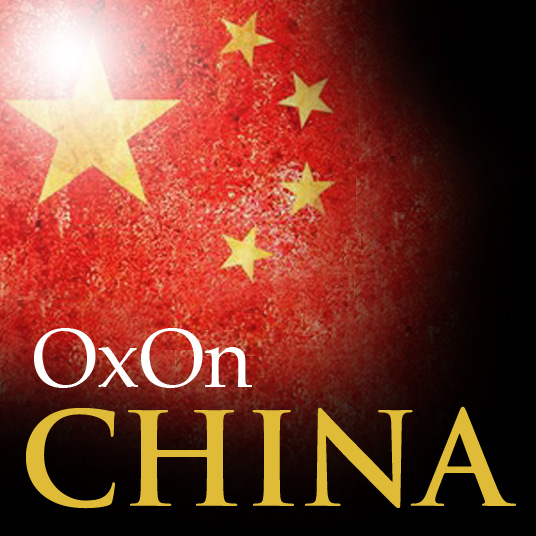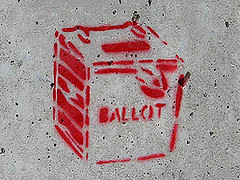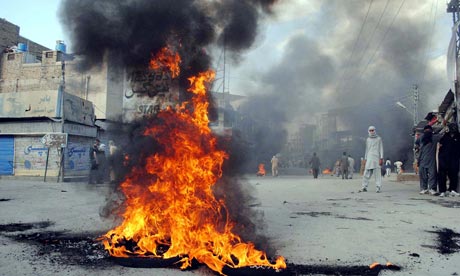
Social and environmental injustice in rural China
It is well-known that one of the key fault lines of inequality in China is the rural-urban divide. Rural China has been the engine of much development through industrialisation; through farming to provide food for China’s cities; and through land grabs which open new areas for investment and government revenue. Yet the benefits of such development are distributed unfairly. Many rural residents either do not benefit directly from development or do so at great cost to their health. These inequalities are compounded by the continued disparity in welfare provision between rural and urban areas. Welfare provision in China’s countryside has doubtlessly improved after the introduction of rural healthcare cooperatives in recent years, but it remains limited. Illness is as an extreme embodiment of routinized and recurrent forms of social suffering and exclusion from various forms of care and welfare. As I document in my book, Fighting for Breath, a population’s attempt to secure care is both a physical and a social struggle to maintain integrity and to ensure family and neighbourly support.
Over the past decade, I have spent almost two years living in rural China and researching attitudes to development,illness, pollution and morality. This has brought me to witness first-hand some of the often unthinkable suffering rural villagers face (environmental and otherwise), as well as poignant moments of human dignity, kindness and resilience. Many of these scenes will stay with me forever. A woman in her fifties salvaging roof tiles before she demolished by hand her own newly built home to make space for a road. A seventy-year-old woman refusing treatment for glaucoma — because ‘one eye is enough’ — whilst opting to save the money for her grandson’s education. My host tending to her dying father (suffering from oesophagus cancer) as he spat blood into newspaper scraps. Sixty-year-old Uncle Wang committing suicide by drinking pesticide in the final stages of stomach cancer. His wife, a few years later, scavenging plastic bottles in the township to boost the family’s income and support her granddaughter’s education. Villagers growing crops in fields they know to be severely polluted. An anti-incinerator activist lying in bed surrounded by flies next to his sick wife after suffering a stroke.

Small Details Make for Big Injustices: Re-education through Labour and Administrative Litigation
The legal relationship between the Chinese state and the citizen are contradictory. The laws on administrative litigation are on one side of the spectrum. They allow the Chinese to sue their government, one of the regime’s most promising reforms (though it has often failed to live up to its potential). On the other hand, re-education through labour (RETL) (laojiao (劳教)), a draconian detention programme, has long been a focal point for critics of China’s human rights record, whereby China’s police can sentence an individual to three years (with a possible 4th year extension) in a labour camp without a trial
Particular cases bear out these contradictions. Tang Hui and Zhao Meifu, two women detained separately under China’s re-education through labour system, have become so well known in China that they helped prompt calls for reforming the RETL system. Yet, both women were recently denied compensation by China’s administrative courts. While criticism of China’s human rights record and courts tends to be very general, these cases show that the small details of China’s legal system showcase the biggest injustices.

Exposing wrongdoing and controlling public opinion through online video in China
In this video [click on full post], a young woman sits on the floor tearfully telling her story: Yue Dan was on holiday in the southern city of Sanya with her husband. Returning to their car, the couple got into a dispute with a parking attendant. According to Yue, a group of men in suits arrived and started beating them. When the police arrived, they joined in beating the travelers without attempting to assess the situation and deaf to Yue’s pleas for mercy. The five-minute-long video ends with photos of the women’s injuries and videos shot by bystanders1.
Yue’s story is just one of a multitude of examples of how Chinese citizens are increasingly using online video to seek justice, retribution or recompense for wrongdoing, and build public support for their cause. However, public response is generally ephemeral and sporadic, and the authorities often aggressively act to control and prevent these attempts to harness the power of Chinese netizens.
The video, which implores media and web users to publicize Yue’s story and help her achieve justice, was posted to the microblogging platform Weibo on 12 February by a tiny blog called Sanya Hero. Although my current research involves tracking the flow of information and comments on Weibo, it is impossible in this case; the video was rapidly removed. A comment on the same blog less than ninety minutes later, thanks readers for forwarding the video, but instructs them to remain rational and wait for an official resolution.

Proposals for decriminalising politics in India
The expert comments as well as gossip about the next general elections is growing louder by the day. Political parties are re-positioning themselves to increase their likelihood of forming the government in 2014. Amidst this hullaballoo, the political class has conveniently turned a deaf ear to the calls by civil society groups to undertake critical electoral reforms such as decriminalising politics.
Several government-appointed Commissions have already made clear recommendations for reforms, but the political will to implement these recommendations in letter and spirit is lacking. At a recent conference on decriminalisation of politics, the Law Minister acknowledged the problem but chose to refer it to yet another Law Commission specially constituted for the purpose. Instead of dilly-dallying, a government that genuinely intends to bring about reform should instead be using its energies to build political consensus to tackle these issues at the earliest. The opposition, too, shares the responsibility for making this happen.

Debating China’s North Korea policy
Following North Korea’s third nuclear weapons test in February this year, much attention has been paid to debates within China over its troublesome neighbour, with some suggesting severing ties to the North altogether. Do these discussions reflect a fundamental shift underway in China’s North Korea policy? Not necessarily.

A Place beyond the Ballots: Women and the 2014 Elections in Afghanistan
2014 is a pivotal year for Afghan Politics. With the withdrawal of NATO troops, the 2014 elections have the potential to determine the country’s socio-political narrative. How these elections are conducted will impact the challenges and opportunities that Afghanistan will face. More specifically, what would this paradigm shift mean to a section of society that have come to represent one of its most repressed, neglected and disenfranchised aspects: the Afghan women. After decades of war and instability, women have finally been able to participate in politics and other male-dominated spheres of Afghan society. After the fall of the Taliban regime in 2001, the increasing presence of women in the Parliament, occupying seats alongside ‘warlords’ and other prominent male figures, has …

India and China in Central Asia: different game plans for securing energy
The much hyped energy rivalry between India and China has seemingly played a part in the new great game in Central Asia. Popular media laments India’s sluggishness in following China’s footsteps. However, upon closer examination, the two countries aren’t quite playing the same game; their motivations and limitations with regard to Central Asia are different, a fact that is often ignored in surface comparisons.

Pakistan: A nation defined by religion yet being torn apart by it
Pakistan was born a paradox. Its partition from India was considered necessary to ensure a homeland for the Muslims of the Indian subcontinent. However, its founder, Muhammad Ali Jinnah, always believed that Pakistan should be a secular state, tolerant of minorities; a homeland for Muslims but not an Islamic state. Unfortunately, he died shortly after partition and the dream of a secular and peaceful Pakistan was stillborn. 66 years after the establishment of the nation, the religious factor underpinning Pakistan’s creation and statehood has now become the principal source of its greatest national tragedy.









